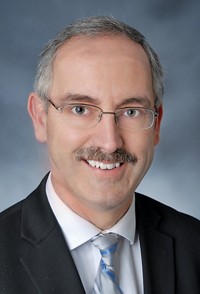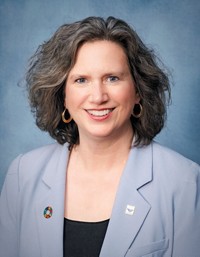Advertisement
Grab your lab coat. Let's get started
Welcome!
Welcome!
Create an account below to get 6 C&EN articles per month, receive newsletters and more - all free.
It seems this is your first time logging in online. Please enter the following information to continue.
As an ACS member you automatically get access to this site. All we need is few more details to create your reading experience.
Not you? Sign in with a different account.
Not you? Sign in with a different account.
ERROR 1
ERROR 1
ERROR 2
ERROR 2
ERROR 2
ERROR 2
ERROR 2
Password and Confirm password must match.
If you have an ACS member number, please enter it here so we can link this account to your membership. (optional)
ERROR 2
ACS values your privacy. By submitting your information, you are gaining access to C&EN and subscribing to our weekly newsletter. We use the information you provide to make your reading experience better, and we will never sell your data to third party members.
Policy
You And ACS: Relevant, Energized, Committed
by Diane Grob Schmidt
January 5, 2015
| A version of this story appeared in
Volume 93, Issue 1
When I joined the American Chemical Society as a graduate student, little did I realize just how much that affiliation would enrich my life. The benefits I have received from being an ACS member have paid tremendous rewards. In return, I have endeavored throughout my career to give back to the profession that has given so much to me. Now, it is with great honor, passion, commitment, and purpose that I undertake the privilege of serving in this office and continue my goal of service to ACS.
Meet Diane Grob Schmidt
Sports have always been a part of Diane Grob Schmidt’s life. She credits her older brother with teaching her to play baseball. She was a pitcher and catcher for her college softball team; played tennis, basketball, and volleyball; and took equestrian classes. She has done glacier skiing and whitewater rafting. She is a Cincinnati Reds fan and manages to go to a few games each season. She also follows college football and some professional football. Her husband, Warren, also a Ph.D. chemist, is retired from Shell Chemical. They reside in Cincinnati.
A lot has changed in recent years in terms of the environment in which ACS operates as an organizational entity. Our challenge is to assess those changes and determine a sustainable path forward that will benefit our members, our profession, and, in keeping with our ACS charter, “advance the broader chemistry enterprise and its practitioners for the benefit of Earth and its people.” I welcome that challenge and the opportunity to work toward keeping the American Chemical Society relevant, energized, and committed.
As president, my theme is “Inspiring and Innovating for Tomorrow.” My overall priority is strategic engagement in three broad areas: advocacy, collaboration, and education. Within these broad categories are more specific focus areas including employment, ACS’s role with industry, and leadership development for members.
Jobs, advocacy, industry liaison
The workforce has changed dramatically since I went to work for Procter & Gamble as a newly minted Ph.D. more than 30 years ago. I was a longtime P&G employee, retiring from there just last year. Today’s chemistry graduates will likely end up working for several employers over the course of their careers. While some may have only one or two employers during their careers, I think many will find employment changes to be the new norm.
The current employment environment is dynamic, not static. And that is not necessarily a negative. New opportunities can be fruitful, especially for those with an entrepreneurial mind-set. I remember a person from my graduate school class who was interested in synthetic organic chemistry. He knew there were markets that were not served by existing laboratories or resources to test or explore certain synthetic pathways, so he built his own small company. He identified a need, had the skills and knowledge to meet that need, and then acquired the business skills necessary to form and run a company. As Louis Pasteur said, “Chance favors the prepared mind.”
ACS is a tremendous resource to help chemists build their skills and take charge of their futures. One example is the ACS Career Navigator. Whether someone is looking for professional courses to help them keep current in today’s competitive marketplace, wants to develop new leadership skills, or needs help building a résumé and finding employment, ACS is ready to help. There is even an ACS Entrepreneurial Resources Center for those wanting to start their own businesses.
ACS cannot create jobs, but we can help create an atmosphere that encourages growth. That translates to lobbying state and federal governments, specifically in matters that translate to employment in the chemical enterprise. Act4Chemistry is the society’s legislative network that provides support to members who want to become involved in advocacy at the state and federal levels. It provides support to individual members, local sections, state committees, and other groups.
Advocacy is a vital strength of ACS. That strength lies in the number and commitment of our member-volunteers. Although we have a tremendous staff who takes care of the day-to-day operations of the society, it is you, the involved member, who keeps our organization relevant and moving forward. Without volunteers, we would surely stagnate.
There are dozens of ways to be a volunteer advocate. Committees and task forces abound, and they are always looking for fresh faces and ideas. I’m sure your local section or technical division would welcome your help. You can even be an advocate for our profession simply by explaining the importance and relevance of chemistry to family, friends, and neighbors. Our Chemistry Ambassadors program is an excellent resource to help you hone your skills at translating our science into easy-to-understand lay language.
Volunteering and being an advocate for our profession doesn’t have to take huge chunks of your time. You can devote as much or as little of your time and energy as you can spare. The most important thing is to do something. Ask yourself, “If not me, who? If not now, when?”
ACS and Industry: a Win-Win
I plan to be an active advocate in the areas just mentioned, but I also plan to be an active advocate with industry about the value of ACS to their employees and ultimately to their operations. I have been on both sides of the fence: as a senior scientist and section head with P&G and as a 10-year veteran of the ACS Board of Directors. I know ACS has a lot to offer industry.
I have spent my president-elect year working with ACS staff to develop a new and stronger “value proposition,” essentially a business statement that summarizes how a company can benefit from a close association with us and by their employees being active members of the society. Once we have our value proposition in place, I plan to make corporate visits with executives in the chemical enterprise and show them what we can offer that is congruent with their companies’ stated principles and how it relates to their bottom line. Some examples include enhancing employees’ skills and knowledge through ACS training courses and conferences; our vast array of technical meetings, which address innovation as well as current and future research trends that could have an influence on a company’s business plans; and our many educational programs and initiatives that help prepare today’s students to become the highly skilled and innovative workforce of tomorrow. I look forward to building a solid win-win link between industry and ACS.
Another vital step in developing a strong relationship with industry is ensuring we are providing the products and services that industrial chemical scientists want. Over the past 10 years, the share of ACS members employed in manufacturing has declined by 14%. That prompts the question: What can we do to attract and keep industry members?
ACS conducted a national survey of industry members to find out what matters to them. Five areas rose to the top of the responses: information, professional development and training, opportunities to network and share best practices, awards and recognition, and advocacy. On the basis of the results of the survey, we can begin to develop and put in place an action plan to address these areas of need among industry members. The corporate visits I will make this year are an integral part of the action plan.

Collaboration
There was a time, years ago, when chemical scientists could focus just on chemistry. Not today. We are multidisciplinary. It’s math. It’s physics. It’s IT. It’s business. It’s biology. It’s all those things. That’s why I want to engage other scientific societies. Perhaps we could persuade them to cosponsor a meeting or a symposium. Our voice will be stronger and our efforts more sustainable when we work with others to accomplish shared goals. For example, the field of nanotechnology is ripe for collaborative ventures between many of our technical divisions and a number of nano institutions.
One of my presidential symposia at this year’s ACS spring national meeting in Denver is “Nanotechnology: Delivering the Promise.” Last year, I sent a letter to all division chairs and their program chairs alerting them to this symposium and asking them to consider nano in their program planning. My hope was not simply to make them aware of the symposium but to engage and energize them as partners. The Denver symposium will lay out the big picture of nanotech. It will cover the current state of the field, including funding, economics, government policy, health and safety, and the status of manufacturing and commercialization. I think of it as one-stop shopping. From that kickoff point, I hope divisions will then drill down and look at how they can apply that information to the interests of their particular division members.
Another area of collaboration I’ve undertaken involves committees that generate some of the ACS policy statements. I have written to the chairs requesting their committee members’ engagement beyond just drafting the statements. The hope is that we can leverage their expertise, knowledge, and experience and get them to help us see other ways they can contribute. I think that would help give them more ownership of the policy statement and make them stronger advocates.
Education
We’ve all heard stories about how a person first got interested in chemistry. Often, the excitement and spark was due to the influence of a specific individual, usually a chemistry teacher. Too often, though, teachers at the primary and secondary level have very limited access to the professional resources and support necessary to ensure their students receive a solid and practical introduction to the chemical sciences.
Last September, ACS launched a tremendous educational resource to address that issue: the American Association of Chemistry Teachers (AACT). It is the first of its kind for K–12 chemistry teachers in the nation. Until the creation of AACT, chemistry was the only scientific field without a discipline-specific national teachers association. Its formation was the result of an ACS task force on education exploring what the society could uniquely do to transform science education in the U.S. AACT is dedicated to improving chemistry education and providing specialized resources to more than a million K–12 chemistry and physical science teachers nationwide. Although targeted toward teachers, membership is open to anyone with an interest in precollege chemistry education.
I am proud to have been an ardent proponent for the establishment of AACT from the time the proposal was first presented to the board of directors. In my view, the establishment of AACT is an example of ACS taking both a transformational and leadership role in education. During my time in the presidential succession, I will look for opportunities to give AACT visibility, increase its membership, and make it come alive.
I am also a great fan of another society education initiative, the ACS Scholars Program—this year celebrating its 20th anniversary. The program provides renewable scholarships up to $5,000 to underrepresented minority students who want to enter chemistry or chemistry-related fields. To date, corporations, organizations, and individual donors have contributed more than $8.5 million to the program over the past 20 years. I’m proud to say that my former company, Procter & Gamble, is one of the largest financial supporters. Not only does the Scholars Program give a helping hand to promising students, it also supports the ACS core value of diversity and inclusion. For industry, it’s a source for cost-effective recruiting. During my time at P&G, we hired 16 full-time employees from the Scholars Program at the bachelor’s, master’s, and Ph.D. levels. Overall, nearly 200 Ph.D.s are former ACS Scholars. That is an amazing statistic!
A gift that lasts a lifetime
Years ago when I was a graduate student, my college professor handed me an ACS application and said, “You need to be a member of the American Chemical Society; this is part of being a professional chemist.” That advice is one of the greatest gifts I have ever received! Every day, I thank him for that guidance and motivation.
“Nothing great was ever achieved without enthusiasm.”
— RALPH WALDO EMERSON
ACS membership has been immeasurably valuable to me as a professional chemist throughout my career, and I believe it can be so for others, especially those just entering the field. My belief in the value of ACS membership is so strong that I have sent a letter to the head of every college department of chemistry encouraging them to present their students with a year’s ACS membership upon graduation. I feel strongly that such a gesture will underscore the importance to new chemical scientists of making ACS their professional home and help create a lifelong bond among them, the American Chemical Society, and their university. If you are able, won’t you join me in giving a membership to one of your colleagues or students? You could change a life through this simple gift.
Advertisement
As president, my pledge to you is that I will be enthusiastic and unwavering in representing the mutual interests of ACS and its members. My hope is that this enthusiasm will be contagious. Just like research is a team effort, so is positioning our society—and ourselves—for the future. It takes more than just one person for a team, or an individual, to achieve greatness. It takes collective passion, commitment, and energy. It cannot be accomplished alone.
Everyone has seen what happens when a person puts their hand in water and churns it up; it sends ripples and waves outward. But when they take their hand out, the water calms and soon it’s like nothing ever happened. I don’t want to be that hand that only has a temporary effect. My goal is to accomplish things that will be fundamental and important to our members and our profession—and that will last.
During my time in the presidential succession, I hope to make a difference, but I need others who share in that enthusiasm, commitment, and passion. I hope you will step up and say, “I want to be part of this. I want to help shape the society, my profession, and my career. I want to make a difference.” Together, we can!
Schmidt welcomes your thoughts and assistance. E-mail her at president@acs.org.






Join the conversation
Contact the reporter
Submit a Letter to the Editor for publication
Engage with us on Twitter